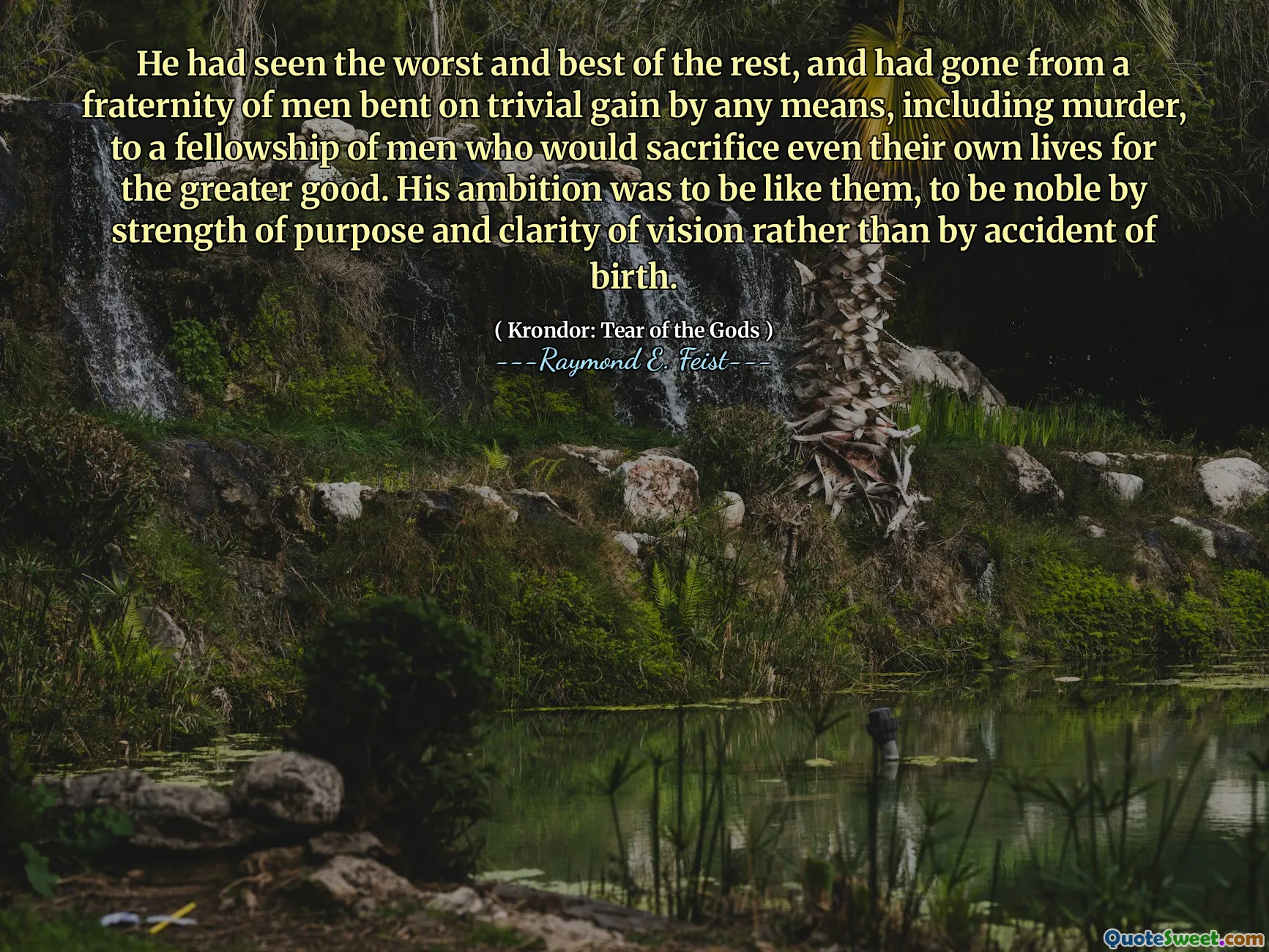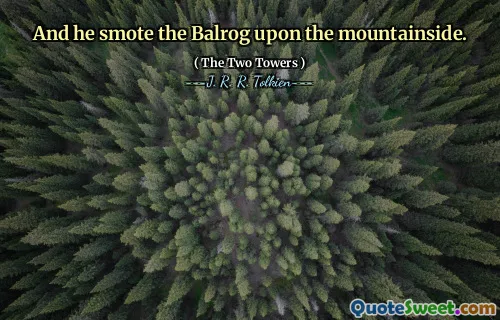
He had seen the worst and best of the rest, and had gone from a fraternity of men bent on trivial gain by any means, including murder, to a fellowship of men who would sacrifice even their own lives for the greater good. His ambition was to be like them, to be noble by strength of purpose and clarity of vision rather than by accident of birth.
This quote encapsulates a profound journey of moral and personal transformation. It reflects the stark contrast between superficial pursuits driven by greed or trivial ambitions and a higher calling rooted in noble purpose and self-sacrifice. The individual's experience of witnessing both the darkest deeds and the noblest acts highlights the complex spectrum of human nature. Rising from a camaraderie rooted in selfish motives, even resorting to murder, to a fellowship aligned with selflessness and sacrifice signifies a realization that true nobility is not inherited but cultivated through deliberate effort and clarity of purpose.
The desire to emulate those who act nobly underscores the universal aspiration for virtue, suggesting that true greatness is achieved through strength of character and steadfast resolve rather than social status or birthright. It raises important considerations about identity and integrity—whether true leadership and honor emerge from inherent privilege or from the conscious choice to pursue a noble path.
This journey from moral ambiguity to clarity serves as an inspiring reminder that transformation is possible, even for those immersed in darkness. The emphasis on purpose and vision challenges individuals to reflect on their motivations and the kind of legacy they wish to leave. It subtly advocates that true nobility is rooted in internal qualities, highlighting the importance of deliberate effort over luck or circumstances. Such insights remain relevant today, urging us to pursue integrity and purpose in our own lives, fostering a society that values character over privilege.
(Krondor: Tear of the Gods) —Raymond E. Feist


